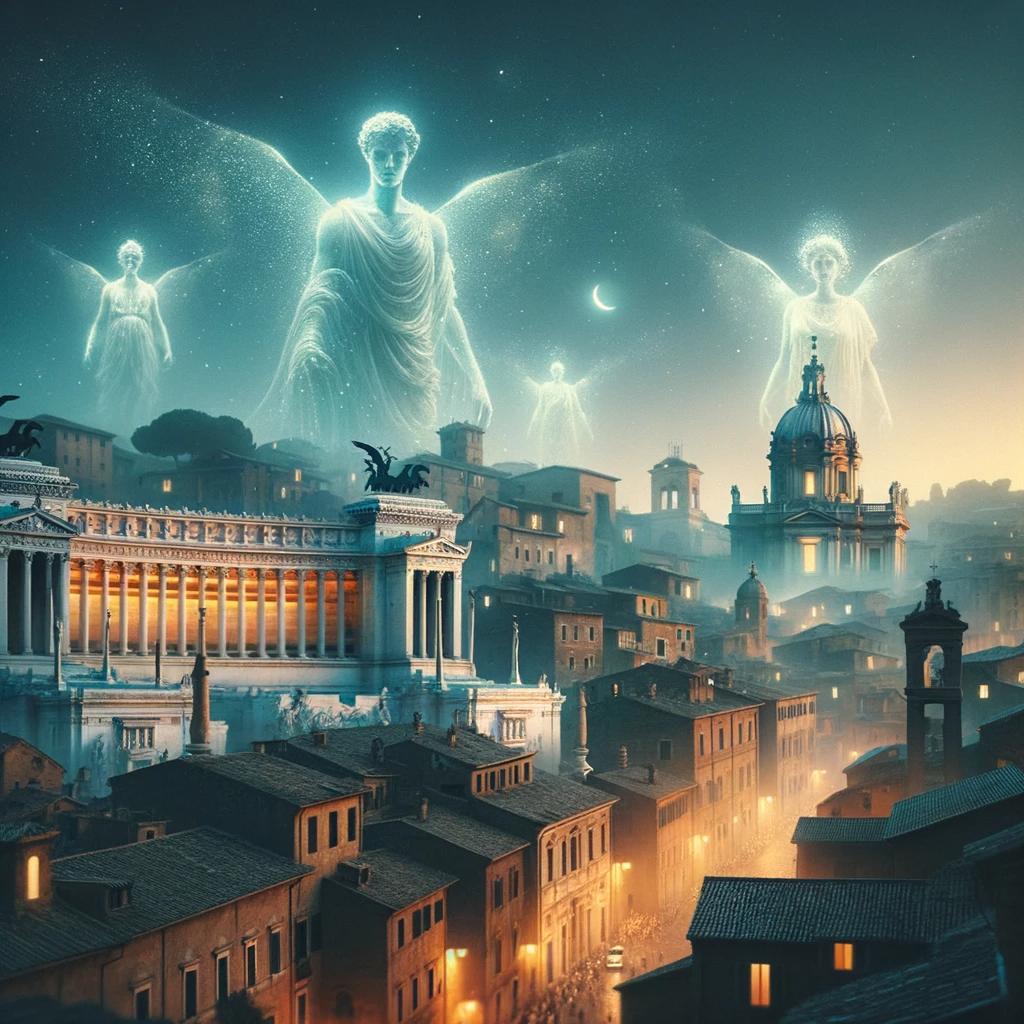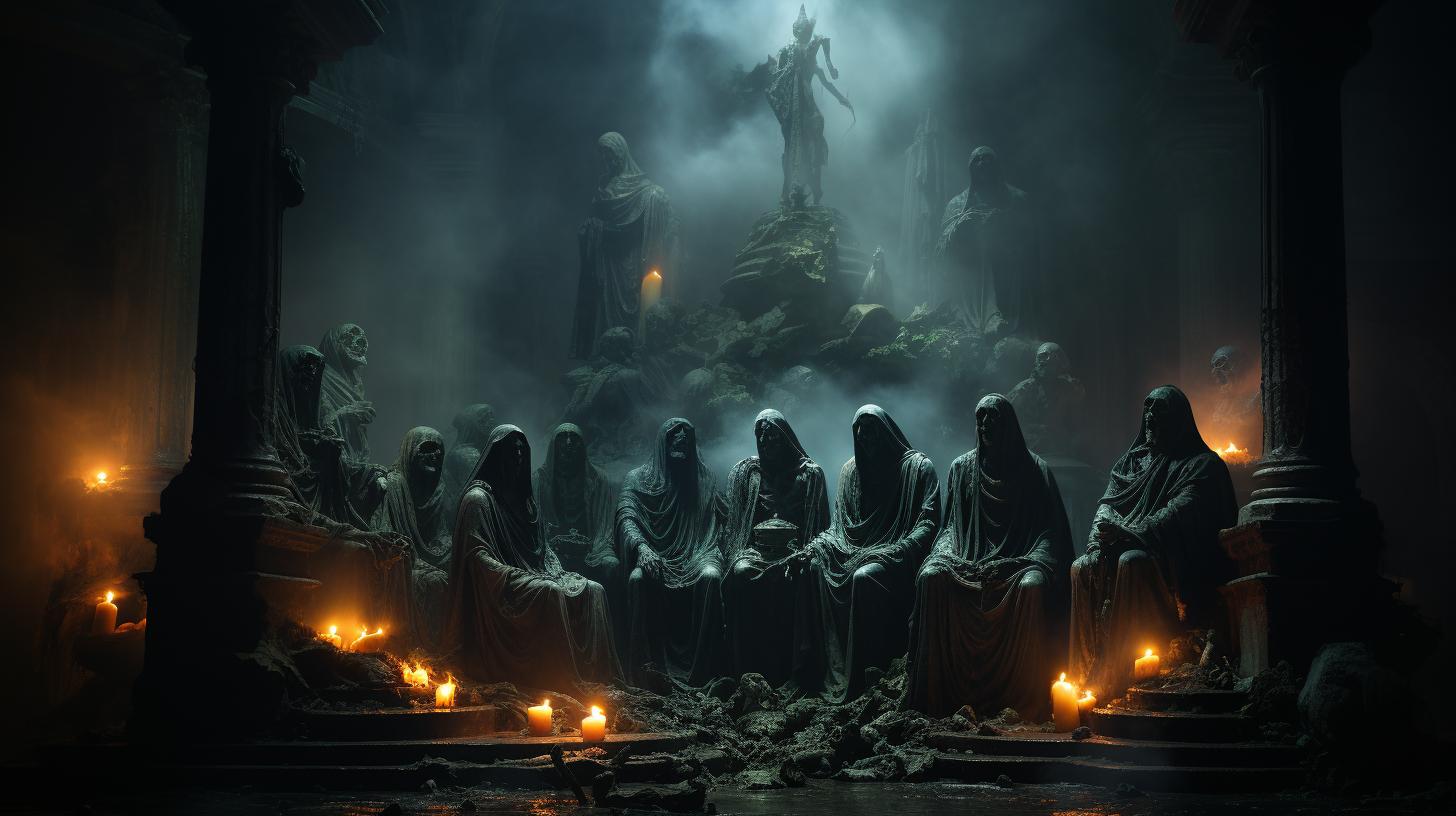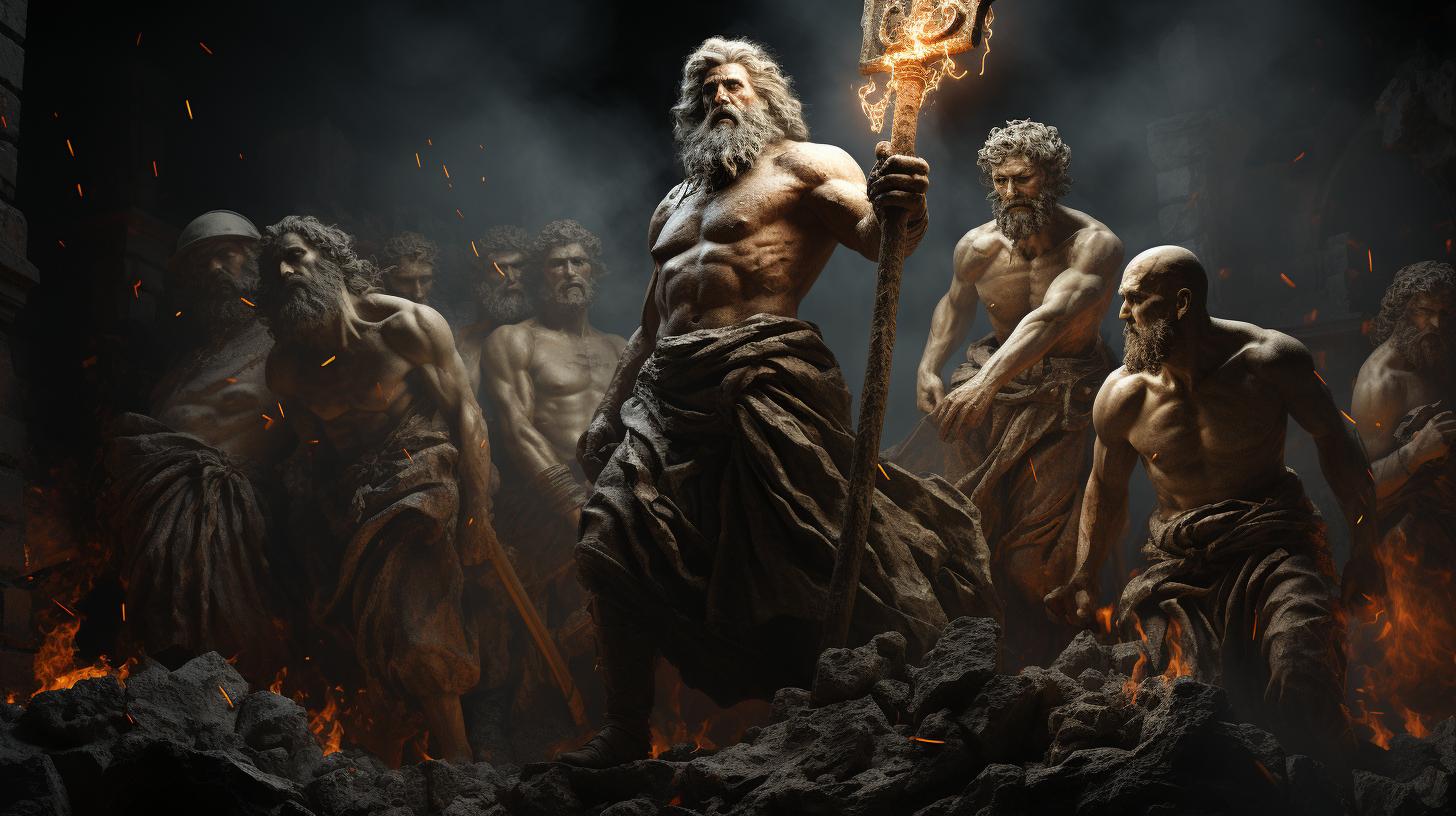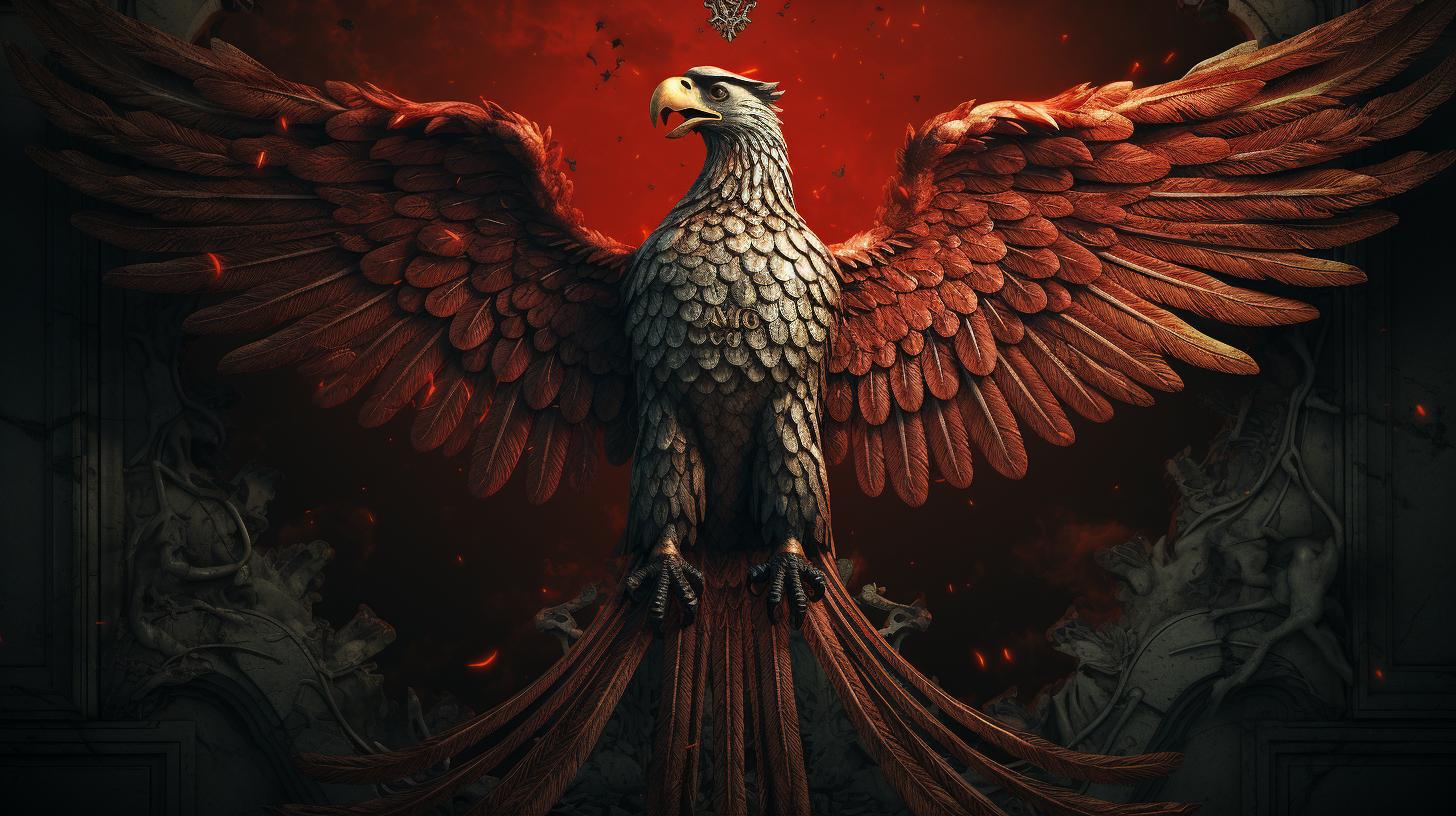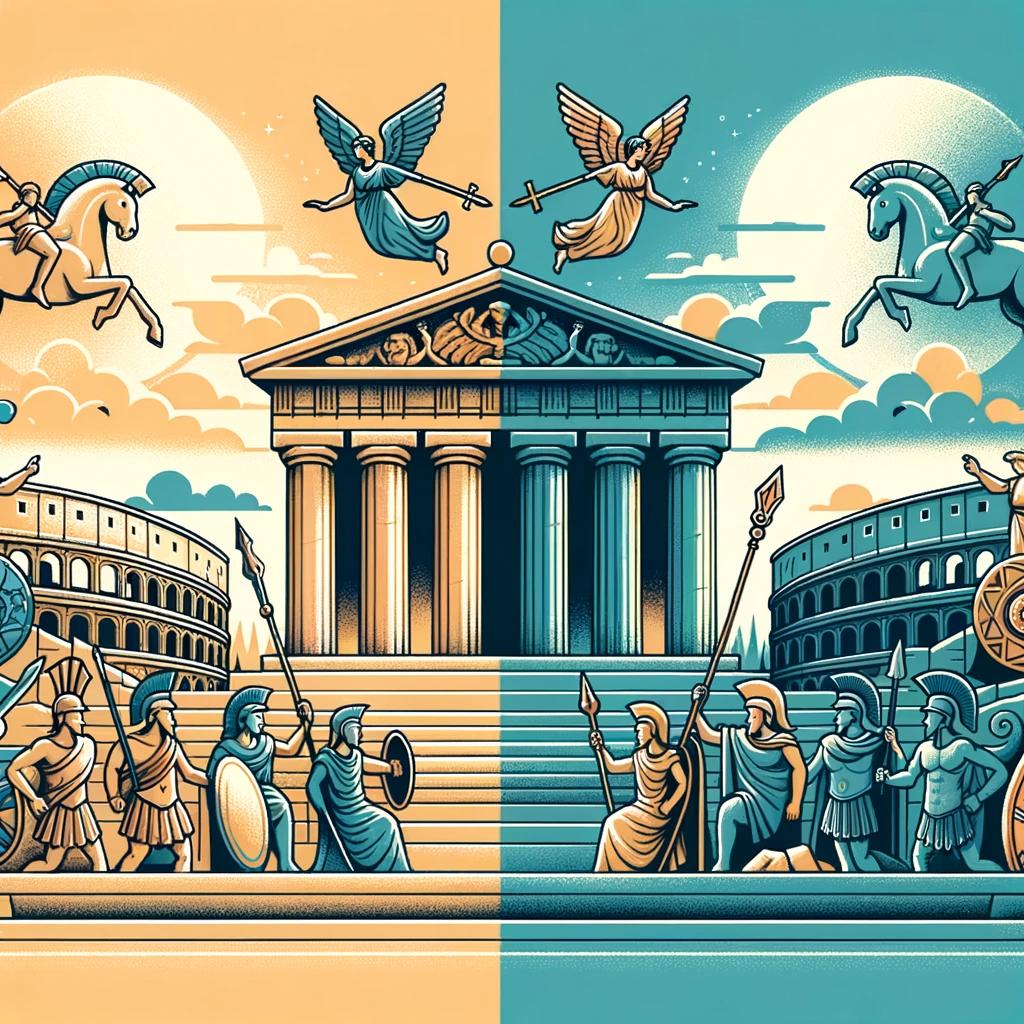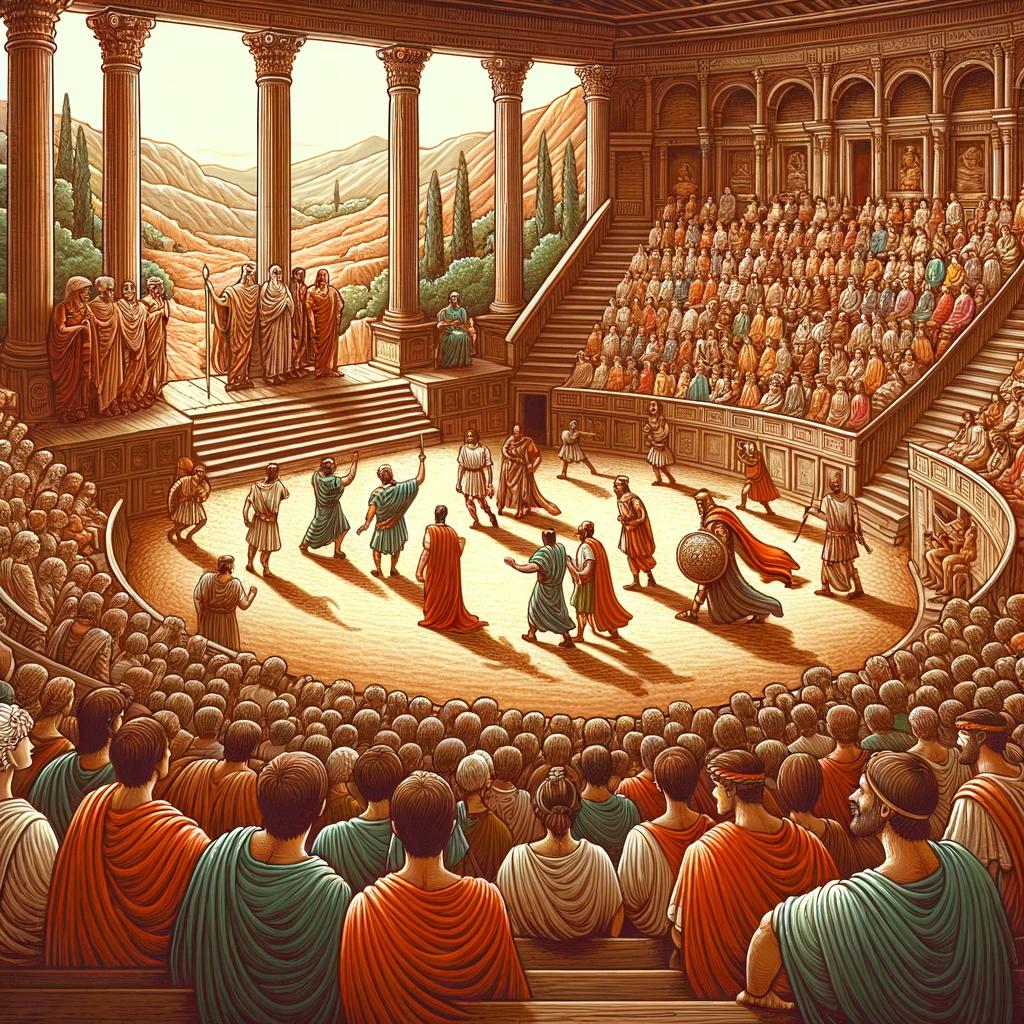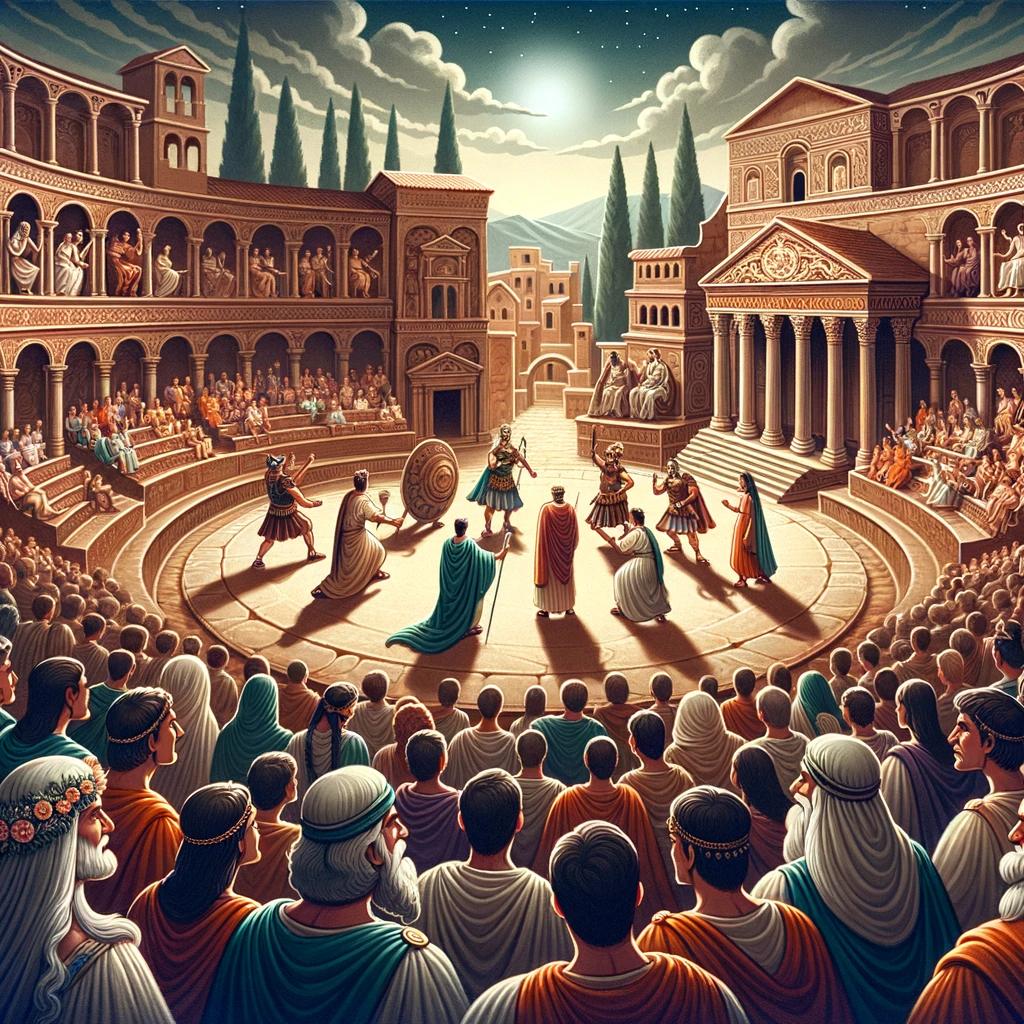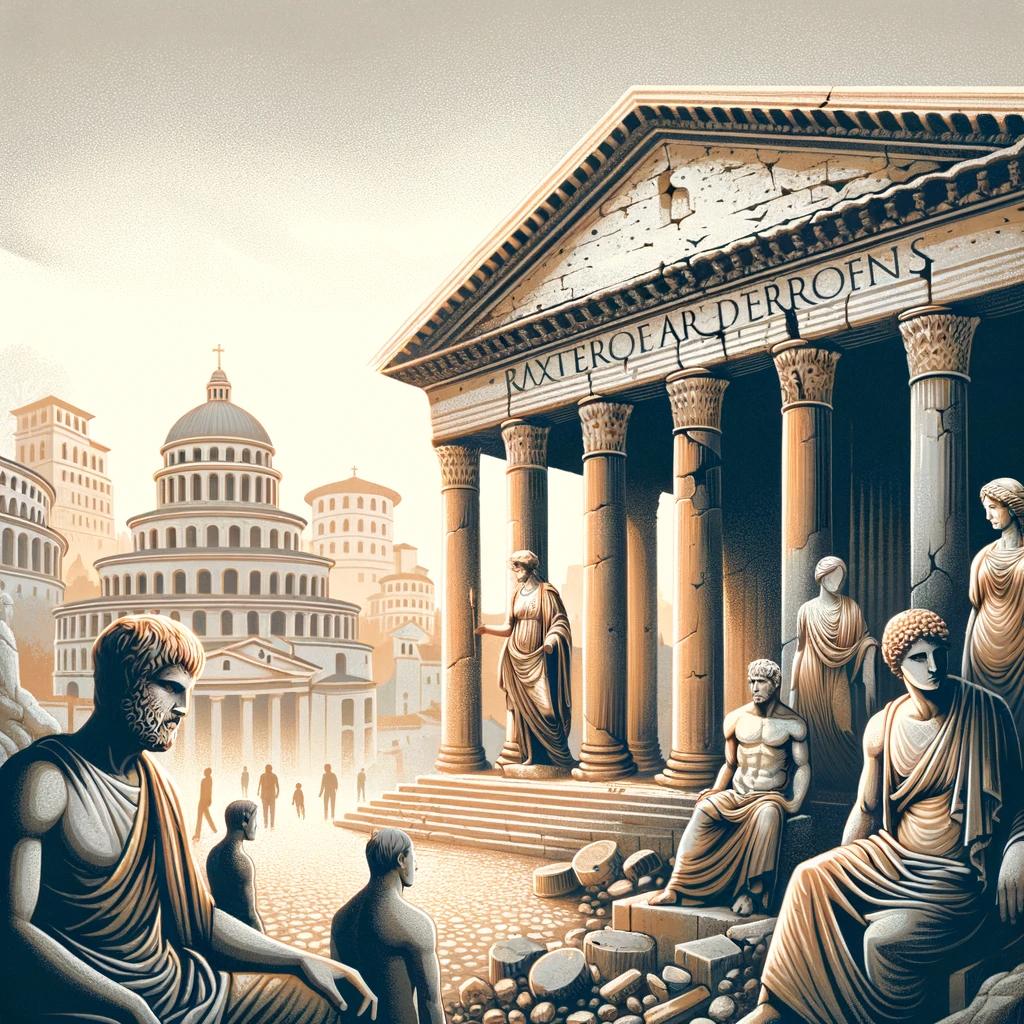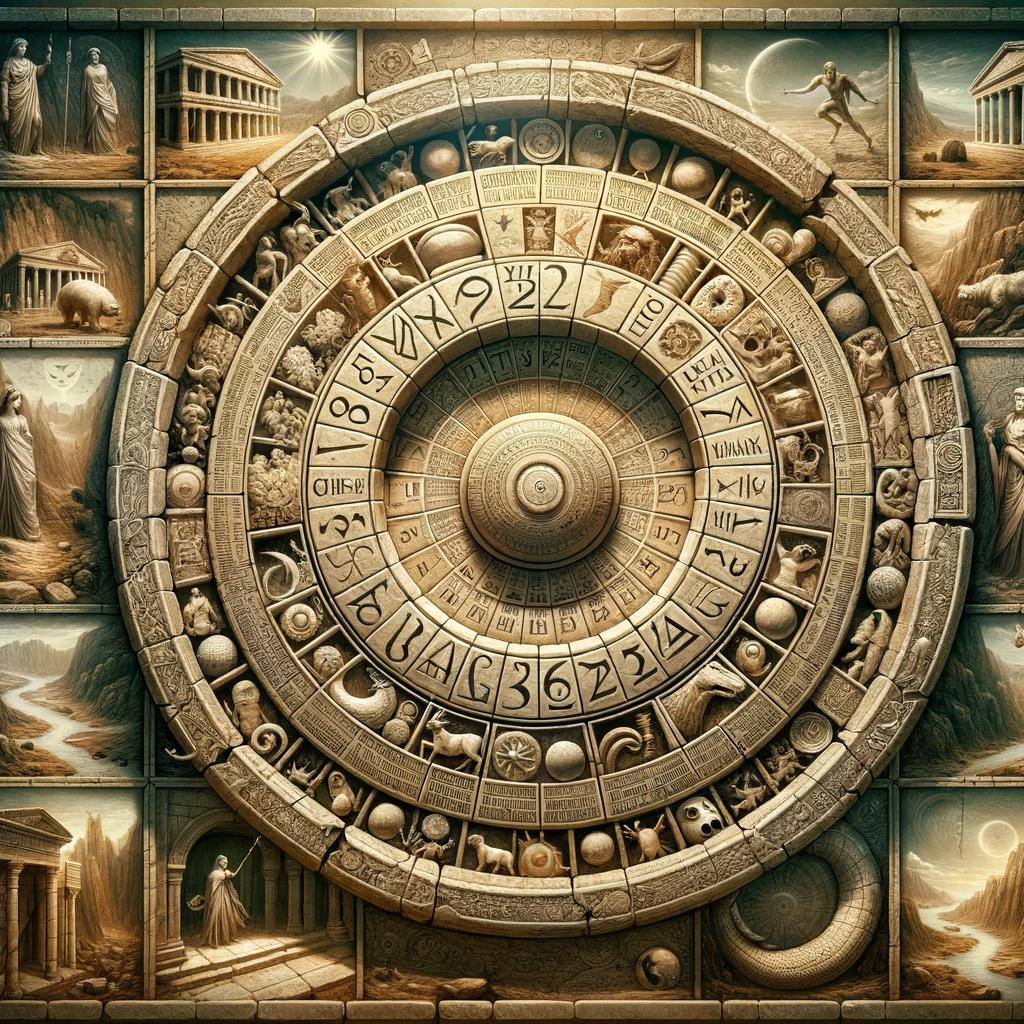Are Roman Gods Real? Unveiling the Ancient Beliefs of Rome
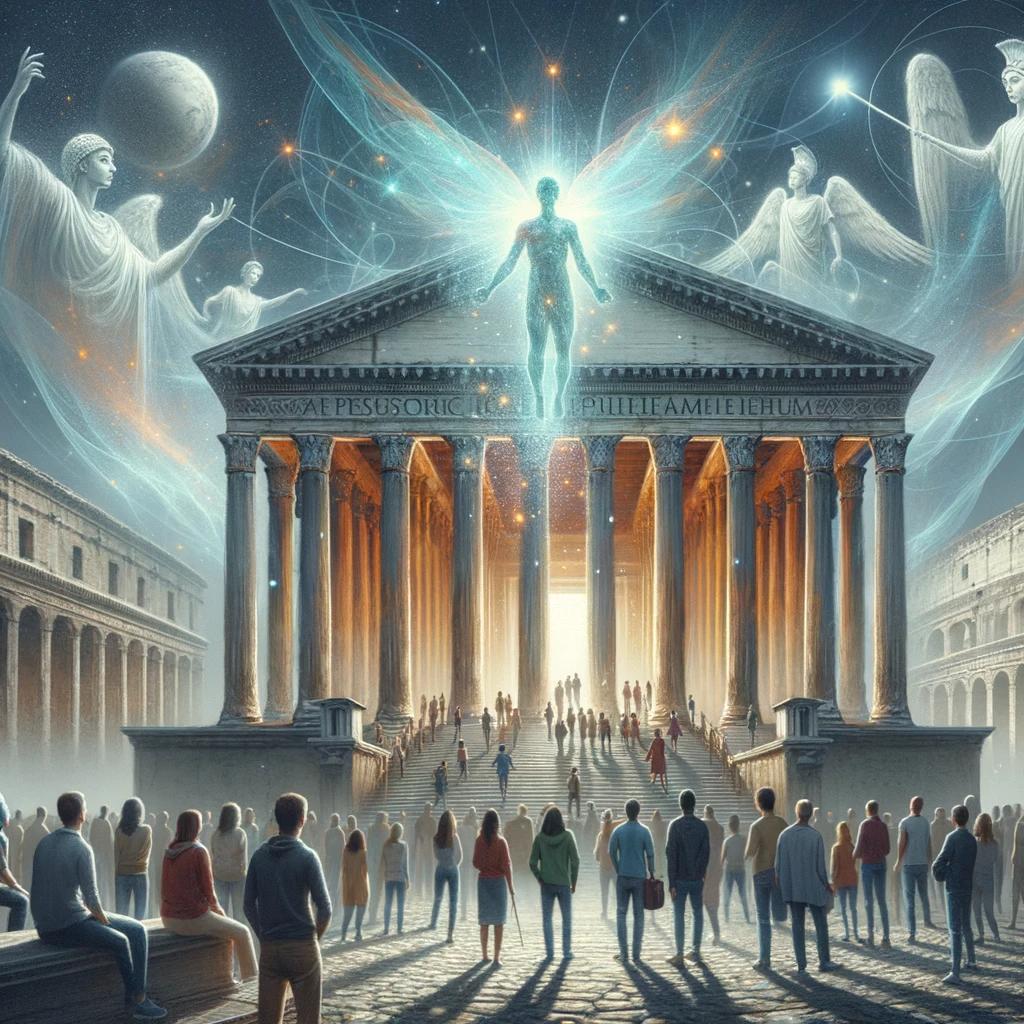
In ancient Rome, belief in the gods was deeply ingrained in society and culture. Rituals and offerings were essential to demonstrating genuine faith in the deities, and failure to honor them could have serious consequences.
Roman gods were not only worshipped through actions, but also depicted in art and literature, showcasing the widespread belief in their existence and power. The influence of Roman gods extended beyond religion and permeated various aspects of society, including politics and social hierarchies.
Through the ages, the perception and reverence of Roman gods have evolved, leaving a lasting legacy in Western culture.
Background of Roman Gods
The ancient Roman civilization was deeply immersed in a rich tapestry of mythology and religious beliefs centered around a diverse pantheon of gods and goddesses. This section delves into the intriguing beginnings of Roman gods, shedding light on the ancient Roman beliefs and their unique relationship with divine beings.
We will explore the polytheistic nature of their religion and how it contrasted with other mythologies of the time, such as the Greek pantheon.
Ancient Roman Beliefs in Gods and Goddesses
Ancient Romans held a deep-rooted belief in the existence and influence of a multitude of gods and goddesses. They believed that these divine beings directly affected everyday life, from shaping natural forces to guiding human affairs.
We will examine the significant role of deities in Roman society, including their associations with various aspects of life, such as fertility, agriculture, warfare, and love. The reverence for these gods was not only present in religious rituals but also permeated societal norms and practices.
Greek vs Roman Gods: A Comparative Analysis
While the Romans were undoubtedly influenced by Greek mythology, they developed their own distinct pantheon with notable divergence from their Greek counterparts. In this section, we will explore the similarities and differences between Greek and Roman gods, examining how the Romans interpreted and adapted certain deities from the Greek pantheon.
By examining the comparative aspects of these mythologies, we gain insight into the unique cultural and theological nuances of ancient Rome.
The Pantheon of Roman Gods
The ancient Romans worshipped a vast pantheon of gods and goddesses, each with their own distinct attributes and roles in the Roman religious system. This section explores both the major Roman gods and their attributes, as well as the lesser-known gods and their roles.
Major Roman Gods and their Attributes
The major Roman gods held significant influence and were revered by the ancient Romans. Here are some of the prominent deities and their associated attributes:
- Jupiter: The king of gods, associated with sky and thunder.
- Neptune: The god of the sea and water.
- Mars: The god of war, symbolizing courage and military prowess.
- Venus: The goddess of love, beauty, and fertility.
- Mercury: The messenger of the gods and patron of commerce.
- Minerva: The goddess of wisdom, arts, and strategic warfare.
Lesser-Known Roman Gods and their Roles
In addition to the major gods, Roman mythology also included numerous lesser-known deities who played specific roles in various aspects of life.
These lesser-known gods had their own unique domains and responsibilities. Here are a few examples:
- Pomona: The goddess of fruit trees, gardens, and orchards.
- Fides: The goddess of trust, good faith, and honesty.
- Janus: The god of beginnings, transitions, and doorways.
- Lares: Household gods who protected the home and family.
- Terminus: The god of boundaries and landmarks.
Exploring the diverse pantheon of Roman gods provides invaluable insights into the religious beliefs and cultural values of ancient Rome.
It highlights the significance placed on various aspects of life and the complex interplay between humans and the divine in Roman society.
Understanding Roman Religious Practices
In order to comprehend the beliefs and practices surrounding Roman gods, it is crucial to explore the rituals and offerings dedicated to these divine entities. This section delves into the nature of these religious practices and the significance they held in Roman culture.
Rituals and Offerings to Roman Gods
Central to the worship of Roman gods were rituals performed to honor and communicate with them. These rituals involved various actions and ceremonies conducted by both individuals and communities. Rituals ranged from simple acts of devotion to elaborate festivals that attracted large gatherings.
- Prayer: Romans believed in the power of prayer as a means of communicating with the gods. Prayers were offered during rituals, often accompanied by specific gestures or postures.
- Sacrifices: Sacrificial offerings played a significant role in Roman religious practices.
Animals, such as bulls, goats, or pigs, were commonly sacrificed to appease the gods and seek their favor. These rituals were seen as essential in maintaining harmony between humans and deities.
- Libations: Libations, the pouring of wine or other liquids as an offering, were frequently performed during rituals.
This act symbolized the sharing of sustenance with the gods and demonstrated reverence towards them.
Importance of Sacrifices in Roman Religion
Sacrifices held immense importance in Roman religion, reflecting the genuine belief in the existence and power of their gods. The act of sacrificing was viewed as a sacred obligation and a means to establish and maintain a reciprocal relationship with the divine realm.
Sacrificial offerings were not just limited to animals; they also extended to valuable objects, such as jewelry, artwork, or even food. These offerings demonstrated the faith and dedication of the worshipper, as well as their desire to please the gods.
Moreover, sacrifices were not solely an act of religious devotion but also had social and communal implications. Participating in sacrificial rituals provided individuals with a sense of belonging and reinforced the bonds within their communities.
Understanding the rituals and the significance of sacrifices in Roman religion offers insight into the deep-rooted belief system that characterized the lives of ancient Romans.
Roman Gods in Mythology and Literature
Mythology and literature play a crucial role in understanding the beliefs and significance of Roman gods.
This section explores the similarities and differences between Greek and Roman myths and delves into the profound influence of Roman gods in ancient literature and art.
Greek and Roman Myths: Similarities and Differences
Both Greek and Roman cultures have rich mythologies filled with gods, heroes, and epic tales.
However, while there are clear resemblances between the two, there are also notable distinctions.
- Deities: Greek gods and Roman gods share many similarities in terms of powers and abilities. For instance, Zeus (Greek) and Jupiter (Roman) are both considered the king of gods and the god of thunder and lightning.
- Naming: One significant difference lies in the naming of gods.
Greek gods primarily retain their original Greek names, whereas Roman gods often have different names or Romanized versions of the Greek ones. For example, Aphrodite in Greek mythology is known as Venus in Roman mythology.
- Representation: Another distinction is the portrayal of gods in art.
Greek gods are typically depicted as idealized human beings, while Roman gods are often shown in a more authoritative and serious demeanor, emphasizing their connection to power and authority.
Influence of Roman Gods in Ancient Literature and Art
Roman gods had a profound influence on ancient literature and art, reflecting their importance and relevance in Roman society.
- Epic Poetry: One of the most well-known examples of the influence of Roman gods is Virgil’s epic poem, the Aeneid. This literary masterpiece explores the journey of Aeneas, a Trojan hero, guided and protected by the gods, showcasing their intervention and impact on human affairs.
- Mythological Themes: Ancient Roman literature often incorporated mythological themes and characters, drawing inspiration from the vast pantheon of gods.
These stories served as a way to convey moral lessons, entertain, and deepen the understanding of Roman religious beliefs.
- Sculptures and Paintings: Ancient Roman sculptures and paintings frequently depicted gods and goddesses, showcasing their divine attributes and significance.
These art forms served as a visual representation of the gods and were often displayed in temples and public spaces.
The influence of Roman gods in ancient literature and art highlights their enduring presence and impact on the cultural legacy of Rome.
The Role of Roman Gods in Society
The belief in Roman gods had a profound impact on various aspects of society, encompassing both politics and social hierarchies. Roman religion was intricately intertwined with the exercise of political power, with the gods playing a significant role in shaping the destiny of the empire.
Roman Religion and Political Power
Roman religion held immense influence over political power structures. The Romans believed that their gods actively intervened in the affairs of the state, and therefore, it was crucial to maintain a strong connection with the divine to ensure the success and prosperity of Rome.
The Senate and political leaders often consulted with religious authorities, such as the Pontifex Maximus, to interpret signs and prodigies believed to be divine messages. The decisions made by these religious authorities were considered crucial for political decision-making, ensuring the alignment of political actions with the will of the gods.
Roman Gods and Social Hierarchies
The worship of Roman gods played a vital role in reinforcing social hierarchies within ancient Roman society. The different gods were associated with specific virtues, ideals, and aspects of life, and individuals sought to align themselves with the gods who represented their desired attributes or domains.
The aristocracy and ruling elite often dedicated temples and sponsored grand festivals to honor specific gods as a means of strengthening their social status and demonstrating their wealth and power. Additionally, individuals sought the favor of particular gods through personal devotion and generous offerings, which further solidified their social standing within the community.
Moreover, religious festivals and public ceremonies were integral in maintaining social cohesion and reinforcing the collective identity of the Roman people. These events brought together individuals from all walks of life to celebrate and honor the gods, fostering a sense of shared culture and unity.
Overall, the role of Roman gods in society extended beyond mere religious belief. Their influence permeated the political landscape and social structures, shaping the destiny of Rome and reinforcing social hierarchies.
Evolution of Roman Religious Beliefs
The evolution of Roman religious beliefs was heavily influenced by the rise of Christianity and the subsequent transition from Roman polytheism to monotheism. This pivotal period in Roman history had significant implications for the role and perception of Roman gods.
Impact of Christianity on Roman Gods
The spread of Christianity in the Roman Empire had a profound impact on the belief in Roman gods. As Christianity gained traction, it challenged traditional Roman religious practices and beliefs. The monotheistic nature of Christianity directly contradicted the polytheistic framework of Roman gods.
Christianity’s emphasis on one supreme God and the rejection of other deities posed a direct challenge to the existing pantheon of Roman gods. The growing influence and popularity of Christianity ultimately led to a decline in the worship and recognition of Roman gods.
Transition from Roman Polytheism to Monotheism
The transition from Roman polytheism to monotheism was a gradual process that occurred over several centuries. As Christianity gained more followers and transformed into the state religion, the Roman Empire began to shift its religious focus from the traditional gods to the monotheistic God of Christianity.
This transition involved a complex amalgamation of religious practices, beliefs, and syncretism. Many aspects of Roman religious practices were assimilated into Christian rituals, allowing for a smoother transition for the Roman population.
The decline of Roman polytheism and the recognition of Christian monotheism marked a significant turning point in the religious landscape of Rome. The influence and perception of Roman gods were gradually overshadowed by the growing dominance of Christianity.
This evolution of Roman religious beliefs had far-reaching implications for Roman society, culture, and politics. It shaped the course of Western civilization and left an indelible mark on the understanding of ancient Roman mythology and the existence of Roman gods.
- The spread of Christianity challenged traditional Roman religious practices.
- Christianity’s monotheistic nature contradicted Roman polytheism.
- Increased popularity of Christianity led to a decline in the worship of Roman gods.
- The transition from Roman polytheism to monotheism was gradual.
- Christianity assimilated certain aspects of Roman religious practices.
- The decline of Roman gods shaped Roman society and had lasting cultural implications.
Modern Perceptions of Roman Gods
Modern times have seen a resurgence of interest and fascination with the ancient Roman gods.
While the belief in these deities as literal beings may have waned, their presence and influence continue to resonate in various aspects of Western culture.
Contemporary Interpretations and Reverence of Roman Gods
Contemporary interpretations of Roman gods often view them through the lens of mythology, literature, and art.
These gods are seen as symbolic representations of human values, virtues, and vices. They serve as archetypes that provide insights into the human psyche and collective consciousness.
Many individuals and groups engage in the modern reimagining and worship of Roman gods through various practices, including neo-paganism and reconstructionism.
These movements seek to recreate ancient rituals and connect with the wisdom and energies embodied by these deities.
Furthermore, the influence of Roman gods can be observed in popular culture, with references to their stories and symbols appearing in literature, films, and even video games.
The enduring popularity of characters like Jupiter, Venus, and Mars showcases the lasting impact of these gods on our collective imagination.
Legacy of Roman Gods in Western Culture
The legacy of Roman gods in Western culture is undeniable.
Their stories, beliefs, and rituals have shaped our understanding of mythology, religion, and even language. Countless English words and phrases have their roots in the names and attributes of Roman deities, further underscoring their cultural influence.
Roman architectural design, such as the iconic columns and temples inspired by Roman temples, has found its way into modern architecture, often symbolizing grandeur and power. The concept of divine intervention, mirrored in ancient Roman gods’ involvement in human affairs, continues to be explored and referenced in contemporary literature and storytelling.
Additionally, the endurance of Roman gods in art, literature, and cultural practices allows us to glimpse into the beliefs, values, and struggles of ancient Romans. Their significance spans across time, helping us better understand the historical, social, and religious contexts of the past.
- The influence of Roman gods extends beyond their original cultural and historical context.
- They continue to inspire and inform various aspects of contemporary art, literature, and popular culture.
- Their impact on language and architectural design showcases their lasting legacy.
In conclusion, while the beliefs in the literal existence of Roman gods have evolved, their modern perceptions and cultural significance endure.
They continue to captivate and fascinate individuals, serving as a bridge between ancient traditions and the contemporary world.
.

